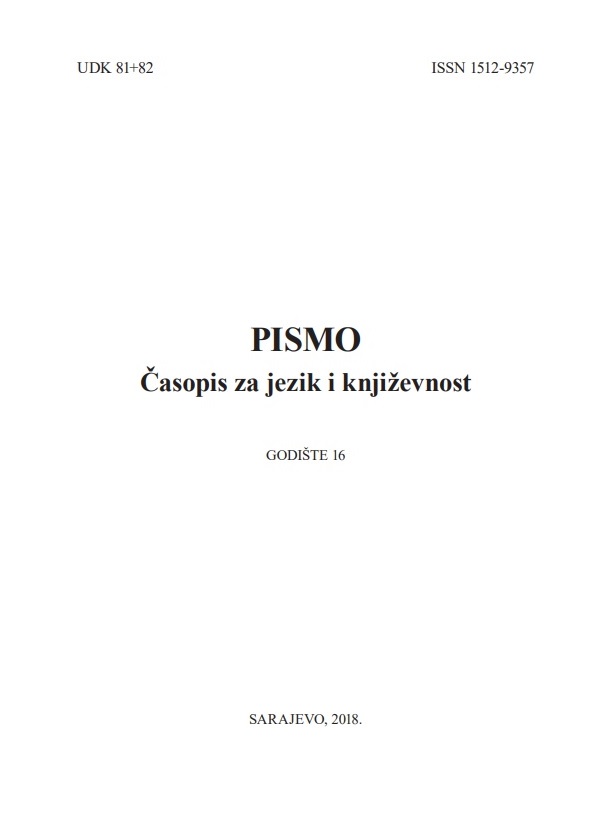Odnos veznika i riječca u bosanskom jeziku
Relationship between Conjunctions and Particles in Bosnian
Author(s): Halid BulićSubject(s): Applied Linguistics, Syntax, South Slavic Languages
Published by: Bosansko filološko društvo
Keywords: conjunctions; junctors; particles; complex sentences; the Bosnian language;
Summary/Abstract: In modern grammatical descriptions of the Bosnian language, conjunctions and particles are considered to be different parts of speech. However, there is a significant degree of disagreement in the grammar literature regarding the classification of particular words into conjunctions or particles. This paper discusses the words whose affiliation with conjunctions or particles has not been clearly defined. First, the categorical affiliation of words i, ni, niti, ili, bilo, ha and (h)em, which may appear in front of all units in the series, including the first one, is analyzed. It has been concluded that these words are conjunctions in all cases except when they are in front of the first coordinand. In that case, they are particles. Words dakle, samo, jedino and tek, which are often regarded as conjunctions of concluding and exclusive clauses in literature, are classified into particles. Their affiliation with particles is best proven by their distribution, which is much more independent than the distribution of coordinative conjunctions. The distribution has also demonstrated that the words i and ni as a second member of the constructions such as pa i, pa ni, te i, te ni, a i, ali i, etc. are particles, while the first members of the structures are always conjunctions. It has also been shown that the word po is never a conjunction. In some cases, it is classified as a preposition and in some cases as a particle. The word kao is considered a particle in all contexts. This particle can be an integral part of complex junctors such as kao da, kao što, kao kad. As far as the word neka, which in literature is considered in some cases a particle, and in some cases a conjunction, it has been established that it is always a particle. The word li behaves differently in different types of subordinate clauses. In the dependent-interrogative clauses it is a particle, and in the final and conditional clauses the word li is a conjunction. In final clauses, it is realized as part of a complex discontinuous junctor ne ... li.
Journal: Pismo - Časopis za jezik i književnost
- Issue Year: 2018
- Issue No: 16
- Page Range: 31-58
- Page Count: 28
- Language: Bosnian

